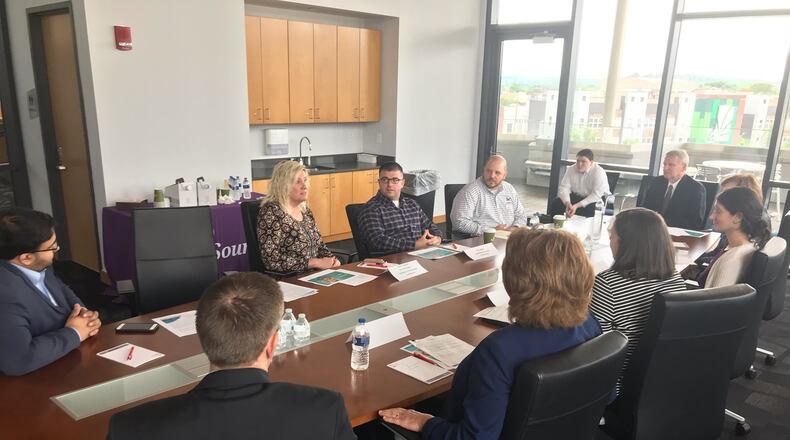MORE: Ohioans living less healthy, spend more on health care
“We know the ingredients of how holisitic case management works. But how do we do it at scale and honor the person being at the center of it?” VanZant said.
VanZant said this is why they find life coaches from the neighborhoods where their clients live and they value finding life coaches with lived experience that relates to their clients.
“We’re excited about this tiny little pilot that started four years ago just in Dayton … with plans to go to all 88 counties by the end of the year,” VanZant said.
A relatively small number of CareSource’s 2 million enrollees use the program, which is also not available at this point in all of the insurer’s service areas.
Dayton-based CareSource manages over half of the private Medicaid plans in Ohio and created its Life Services program in 2015, which low-income people become socially and economically secure. This includes its JobConnect program, which helps with long-term employment.
When someone opts in to JobConnect, they get a life coach assigned to them to be a support system. After coordinating services to meet their immediate needs, like housing and food, the life coach helps the person they are working with their education and employment goals.
Life coaches stay with the people they are working with for up to two years after getting employment.
CareSource JobConnect member Joe Weikert said working with life coach Eric Mata helped him while he went back to school, stayed sober and bought a house.
“He was the first person outside my family that said ‘Joe I believe in you,’” Weikert said.
MORE: Dayton Children's opens new hub of medical, social services
Weikert was part of a group discussion hosted in Dayton by CareSource, which was attended by Ohio Medicaid Director Maureen Corcoran.
As of March, 2,377 members opted in to the program. Members on average received three referrals to community services, such as to food banks or housing assistance.
Of those who worked with a life coach, 1,014 gained employment and 83 percent of members who were employed at any time while in the program retained employment 90 days in.
An analysis of about 400 of the program participants showed there was a 15.5 percent decrease in emergency department visits. Pharmacy claims were up 37.1 percent among the sample or participants, though CareSource stated that might indicate the clients are getting better disease management.
CareSource is still measuring the long-term impact of the program, which started in Montgomery County.
About the Author
